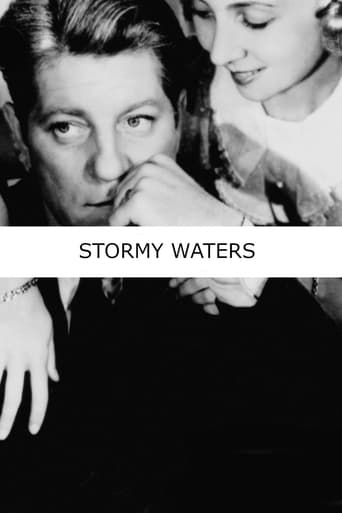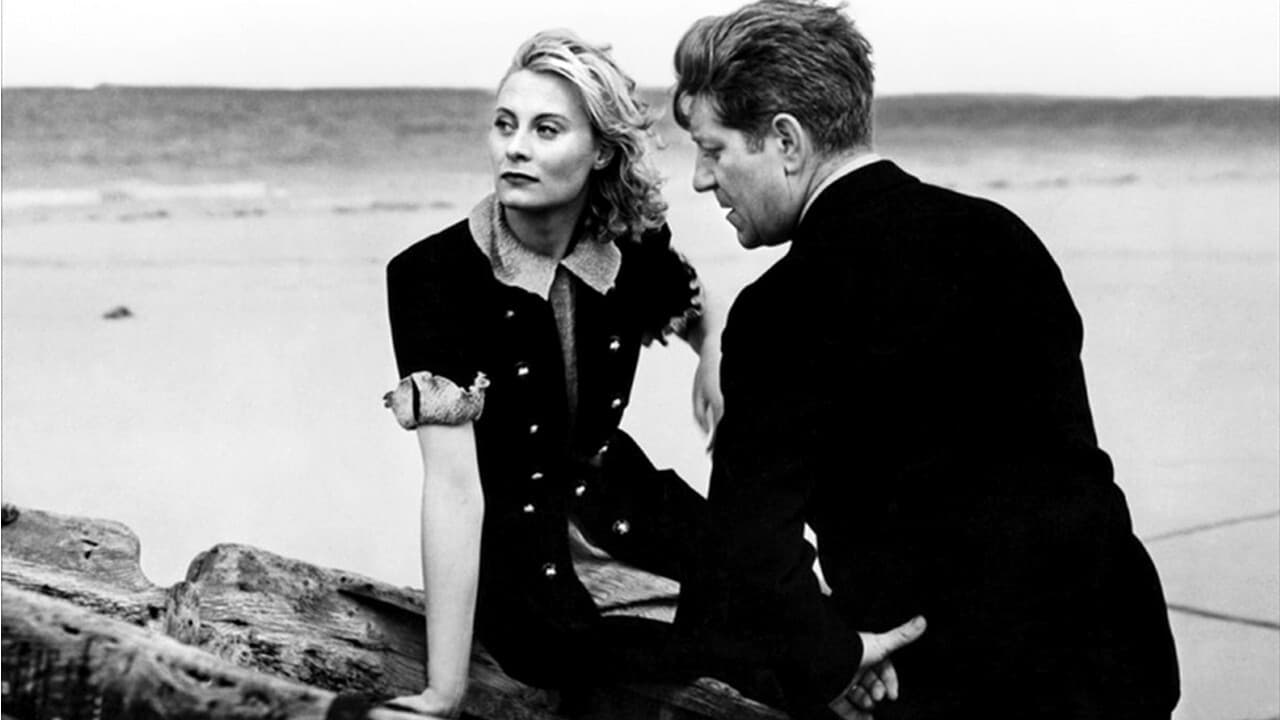evening1
I was surprised to see poet Jacques Prevert credited as a writer of this rather vapid film about married life and the ravages of adultery. The dialog is generally quite ordinary.Gabin, never handsomer in a film, isn't too convincing as a ship captain. It's rather painful to see his polite but passionless treatment of his adoring wife, played by a bland Madeleine Reynaud. And I couldn't see what he saw in Michele Morgan as the unhappy married woman who seduces him. Clearly he was using her to self-stimulate but when he tells her he loves her all one can think is "Come again?"Some of the ocean scenes are interesting and the wind-whipped rain at the end is fairly atmospheric.Mostly, though, I felt the actors here were just phoning in their performances.I'll never pass up a Gabin film so I'm glad I sat through this. But it isn't memorable.
writers_reign
Films like this were the bread and butter of French Cinema in the first two decades of Sound and this one boasts a glorious roster from Gremillon himself to Andre Cayette, an uncredited Charles Spaak and, of course, arguably the Greatest of them all, Jacques Prevert. In a film in which the sea is a major character it was a master stroke to begin the story on land and with a set piece, the wedding of one of the mariners which allows a natural chance to establish Gabin's Andre Laurent and hear his praises sung to the heavens then see him in happy domesticated mode, dancing with his wife of ten years and far from happy with his lifestyle though deeply in love with him. An S.O.S. call establishes that these men are the crew of an ocean-going tugboat who help ships in distress in return for a piece of the action. A second master stroke is the delayed appearance of Michele Morgan who we know is about to provide the love interest/temptation for Gabin. She turns out to be the 'wife' of the morally dubious captain of the distressed ship and can't wait to leave him. The fact that shooting began in 1939 only to be halted by the outbreak of war, resumed roughly one year later has led some viewers to see this as a bridge between the poetic realism of the late thirties and the Cinema of Occupation although personally I don't buy into this whilst relishing the Prevertian 'touch' of having Catherine (Morgan) hail from Le Havre which was, of course, the setting for the initial Gabin/Morgan movie Quai des Brumes. The couple of 'holes' in the script - Morgan's husband, reluctant to let her go, makes no attempt to trace her whilst she, with no visible means of support, appears to be living in a luxury apartment - are mere cavils and whichever way you slice it this is one to treasure.
josski
Remorques is essentially a film about the ocean and its effects on the people associated with it; for the main character Capitaine André Laurent it introduces him to the mysterious Catherine, for André's wife Yvonne, the sea is what prevents her and her husband from living a quiet life, which is all that she wants.The plot is simple to follow and the viewer is constantly drawn back to the sea, in almost every scene there is a reference to it, whether it be a beach in the background of the shot or the sound of a howling wind. The final scene was for me the strongest with the wind howling, the chanting of mournful voices accompanied by the images of the captain's tugboat and his journey through the sheets of rain, back to the sea.
dbdumonteil
The making of "Remorques" began in 1939,as a follow-up to the excellent "l'étrange Monsieur Victor",and because of the Occupation,was released two years later.That also explains the length of the movie (hardly 80 minutes in the broadcast versions).It's a simple story:the plot involves a tough sailor,Gabin,torn between two women ,the frail Madeleine Renaud,Gremillon's favorite actress (she was featured in all of his four movies of the 1938-1943 period),and the disillusioned Michèle Morgan (with whom he had teamed up in Carné's famous "quai des brumes").The banal plot matters much less than the atmosphere;the star of the movie is the Ocean:you can hear,feel or see it ceaselessly along the viewing.This ocean which nobody can tame,which breaks willpower.For man must work and woman must weep..SPOILERS: The ending climaxes the movie.A distraught incredulous Gabin gazes at his dead wife whilst a lugubrious siren desperately wails there down by the ocean.Then the man,forgetting his plight,walks across the harbor to come to the rescue of the boat in distress:you can hear voices chanting prayers for the dead as he makes his way through darkness .This ending has the strength of an epic Victor Hugo poem.


 AD
AD


